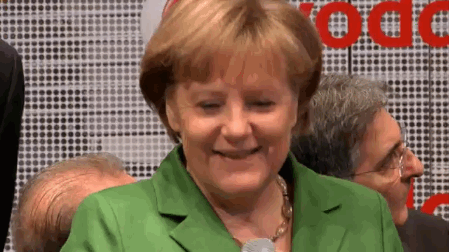🇩🇪 Queen of Europe? Angela Merkel's Legacy
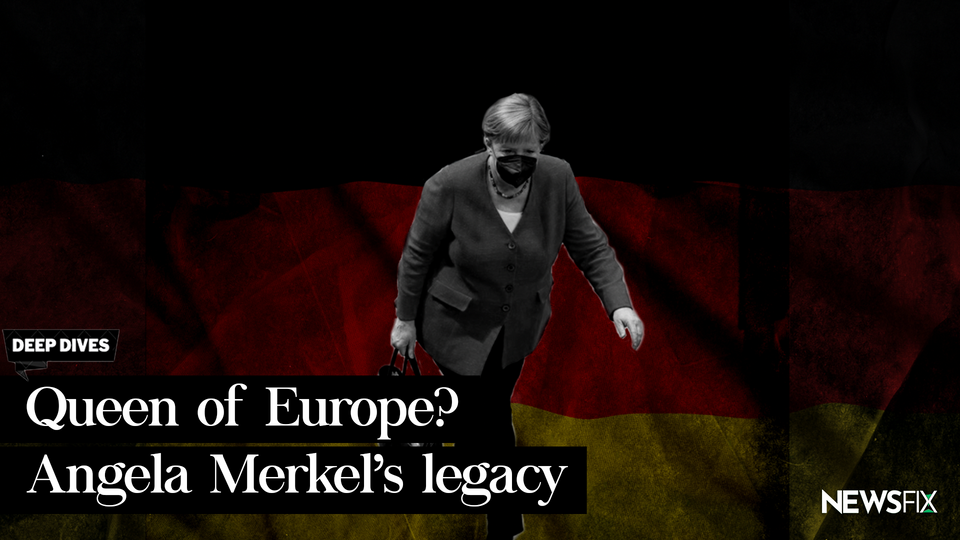
Morning all,
Despite being arguably one of the most famous faces in the world, how much do you actually know about Angela Merkel?
In a matter of days a significant chapter in Germany's history will draw to a close, when the country's first female chancellor hands over the reigns to a left-leaning coalition.
For 16 years, Merkel was a seen as a steady presence in international politics, earning her the nickname 'Queen of Europe' - we hope this piece serves as an informative read as her retirement looms.
Until Monday,
Your Fixers
BEFORE WE BEGIN...
It's An-geh-la.
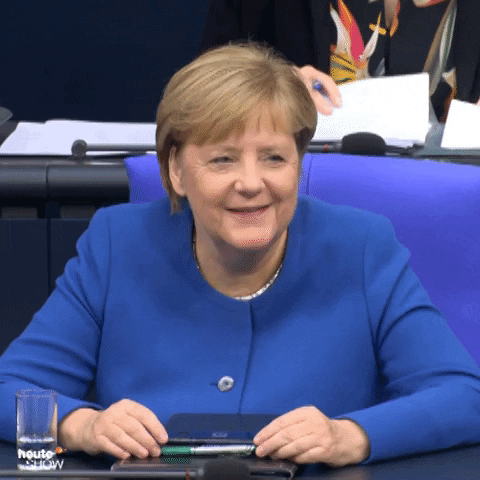
EARLY LIFE
Angela Dorothea Kasner was born in Hamburg, West Germany, on July 17, 1954. Her father Horst Kasner was a Lutheran vicar, and her mother Herlind Kasner was an English teacher.
The family relocated to Communist East Germany weeks after Merkel’s birth - when her father accepted a pastorate there. It was on this side of the Berlin Wall that Merkel grew up and studied.
What does that mean?
After WWII, Germany was occupied by the main allied powers and divided into four zones: The Soviet, US, French and British sections.
The Western allies joined their zones together - this became the Federal Republic of Germany (West Germany). Later, the Soviets formed the German Democratic Republic (known as East Germany).
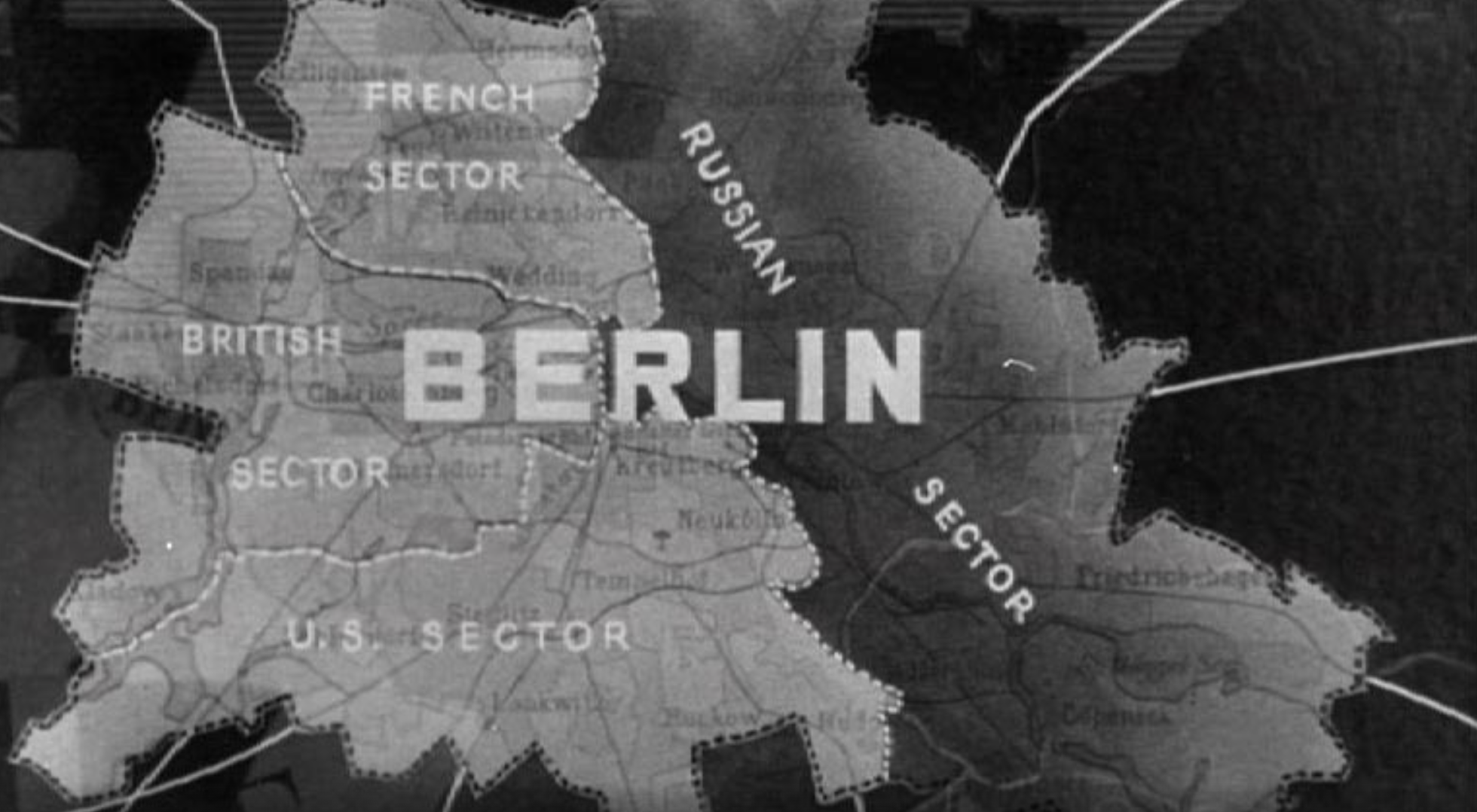
The Berlin Wall was a barrier that separated the East and West sides of Berlin. It served as an ideological border - separating communism and capitalism - and was guarded by watchtowers, gun emplacements, and mines.
The Berlin Wall did not fall until 1989 - when Merkel was 35 years old.
Merkel is known for maintaining privacy over her personal life - and rarely speaks of her upbringing. Although, in 2013 she briefly discussed her upbringing in East Germany: “If you only saw the system, then you really couldn’t laugh”.
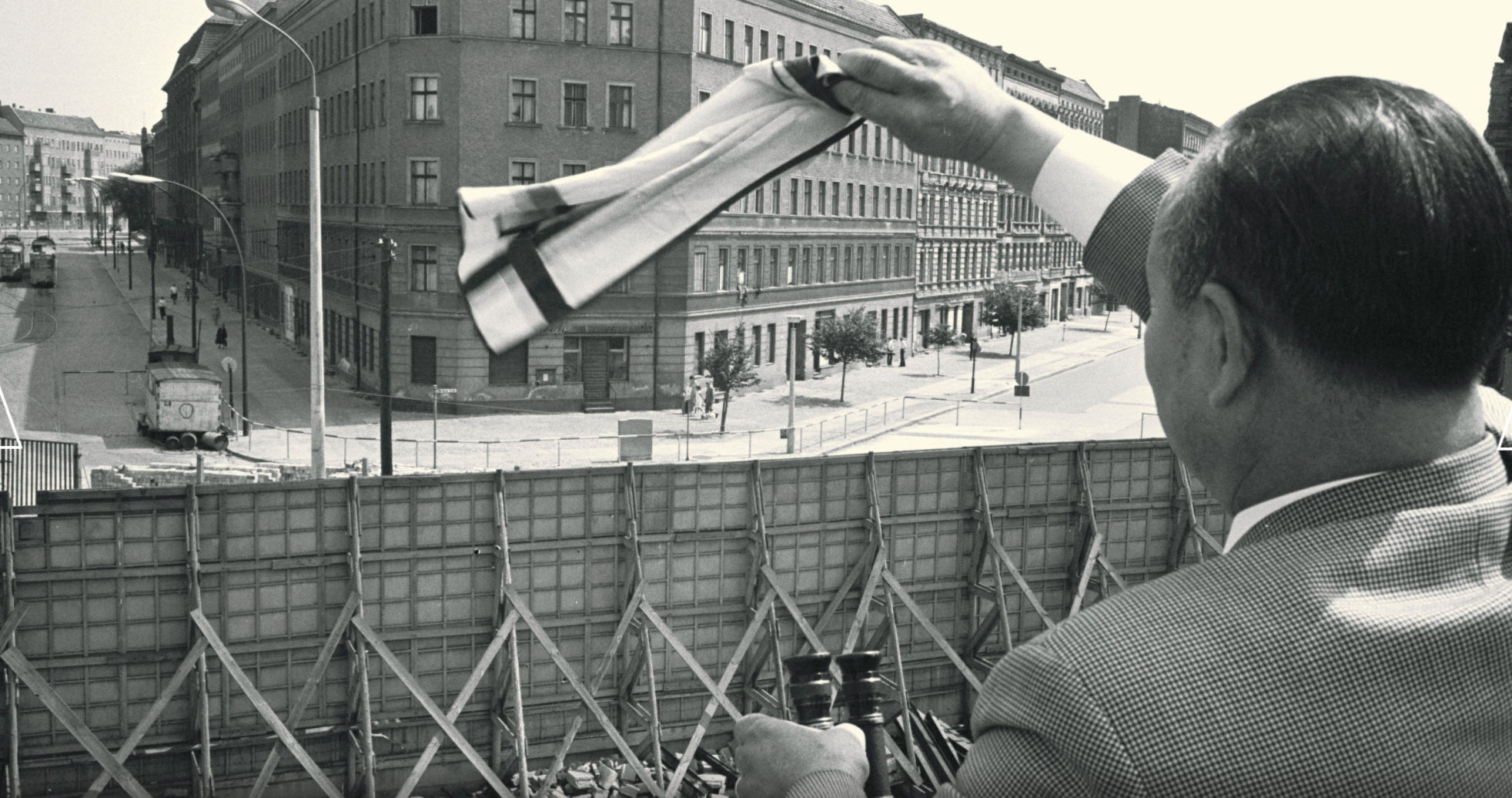
MERKEL THE SCIENTIST
In Leipzig, East Germany, Merkel studied physics at Karl Marx University from 1973 - now known as the University of Leipzig.
It was here she met her first husband Ulrich Merkel - a fellow physics student. They married in 1977, but divorced in 1982.
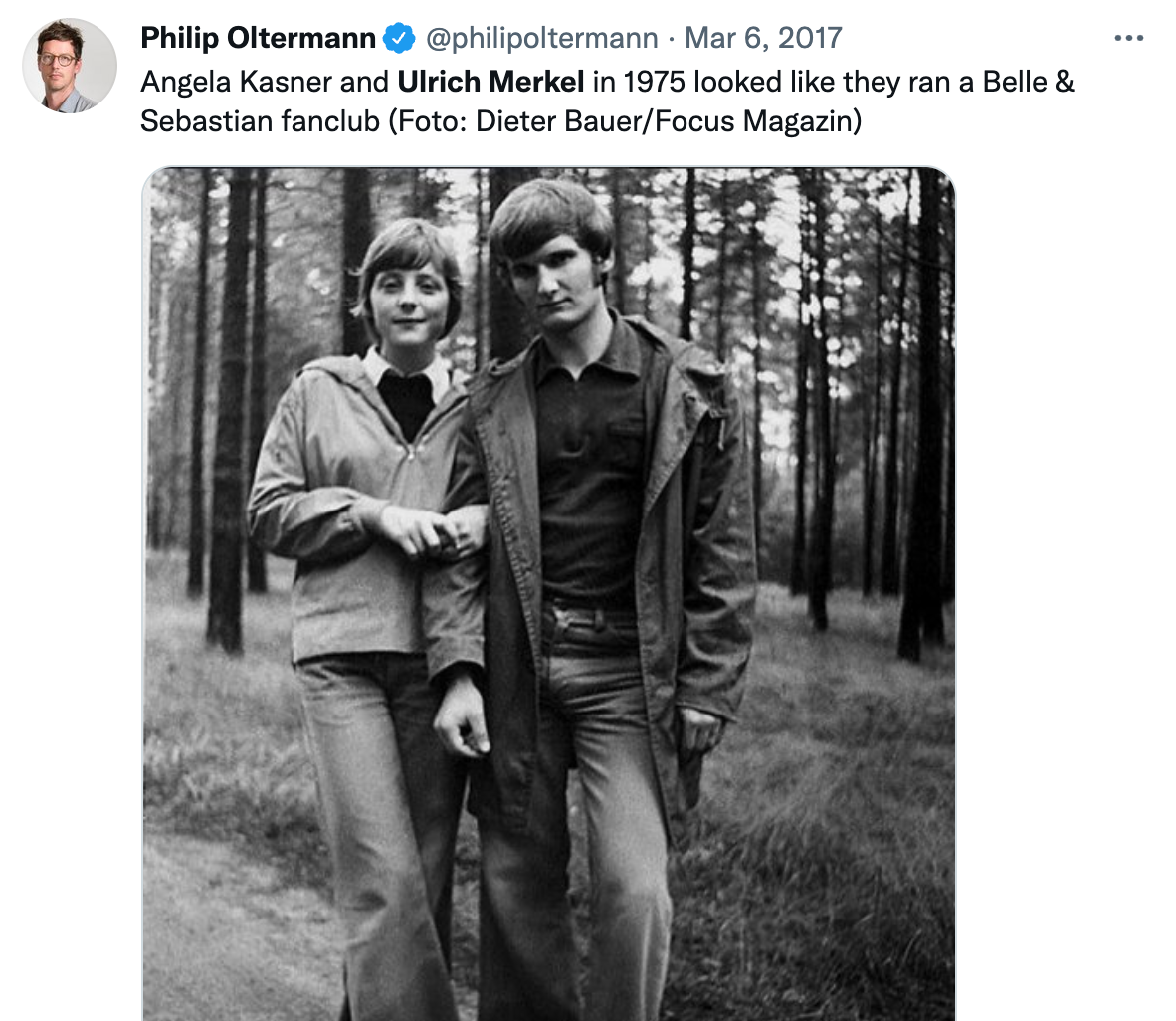
After graduating, Merkel worked in the University’s science department for a number of years and was awarded a doctorate in quantum chemistry in 1986.
POLITICAL INVOLVEMENT
As was typical for children growing up in East Germany, Merkel took part in organisations such as the Free German Youth - the youth-movement of the Socialist Unity Party of Germany.
In the Free German Youth, Merkel was secretary for agitation and propaganda - something she was later criticised for. However, she stated her responsibility was limited to cultural events and that she was never a member of the Party.
In 2009, Merkel detailed how as a teenager, she refused an approach to become an informant for the Stasi - the highly repressive East German police force.
Merkel said this year she felt insulted by negative remarks concerning her background in the East: “am I not a born federal German?... Are there two different kinds of Germans and Europeans: the original and the trainees?”.
THE POLITICIAN
In 1989 when the Berlin Wall fell, it marked an event that kick started Merkel’s political career. In East Germany a "tiny" new Party, the Democratic Awakening, was formed - which Merkel joined and was a spokesperson for.
The Party joined in a conservative coalition with the German Social Union (DSU) and the Christian Democratic Union (CDU).
In August 1990, the coalition won the first and only free election to be held in East Germany - and Merkel became deputy spokesperson for the CDU-led government.
Merkel joined the CDU and the party united with its western counterpart when East and West Germany reunified in October of that year.
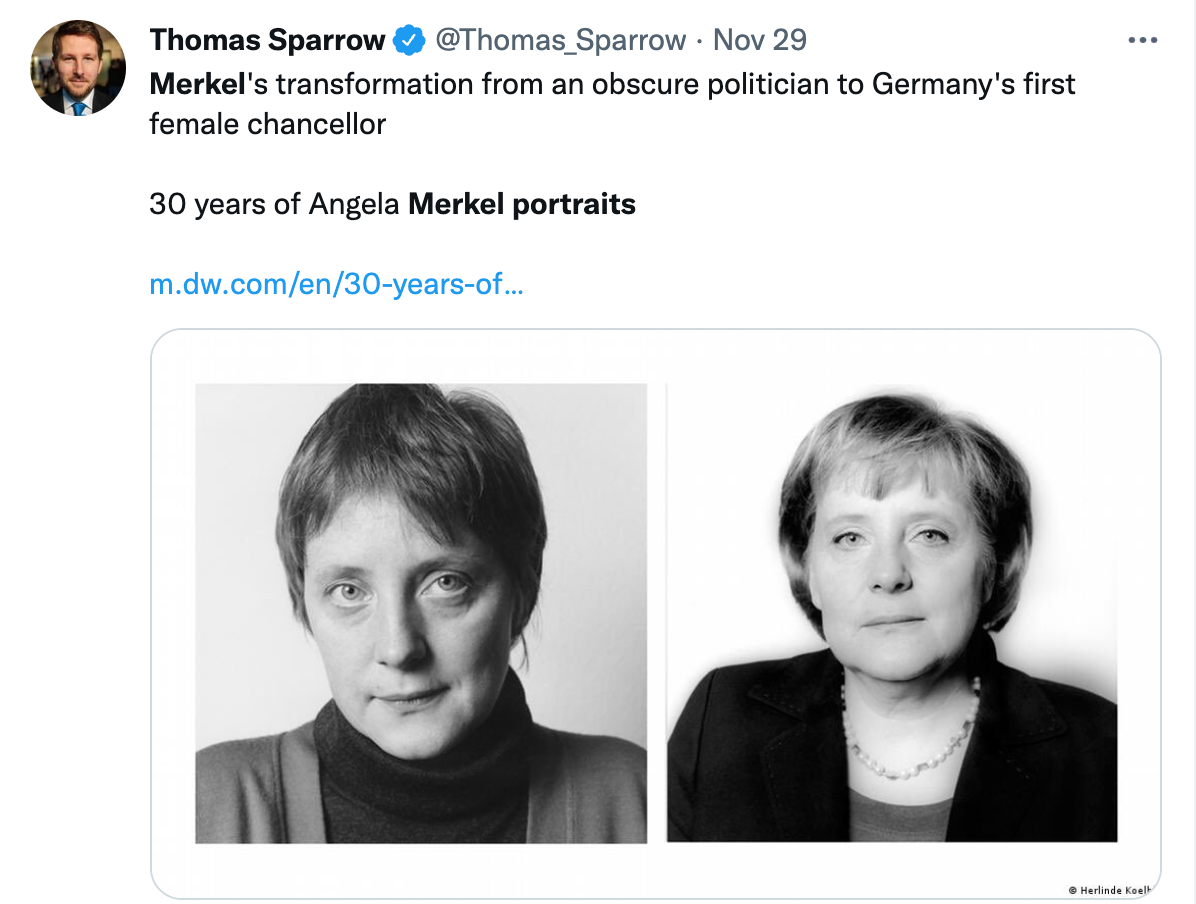
THE CHRISTIAN DEMOCRATIC UNION
Founded in 1945, the CDU is a Christian party and is the longest-leading political party in the German government, having occupied the chancellor’s office for 57 of 72 years of the Federal Republic of Germany’s existence.
The CDU is seen as stable, and a “guarantor of Germany solidity and prosperity” - as well as being a centre-right party that aligns itself with Western allies.
Although the CDU was founded as a Christian party and its own leaders are of that faith - the party is officially secular.
MERKEL THE MINISTER
In the first election post reunification, Merkel won a seat in the Bundestag - the German parliament.
Chancellor and member of the CDU, Helmen Kohl, sought young political talent from the East - and appointed Merkel Minister for Women and Youth in 1991. Merkel then became the Minister for the Environment, Nature Conservation and Nuclear Safety in 1994.
PARTY LEADER
The CDU lost the 1998 elections and was replaced by the SPD.
That same year, Merkel became General Secretary of the party - and also married her second and current husband, Joachim Sauer, a Professor of Chemistry.
It should be noted her husband, Sauer, is very rarely seen in public with her.
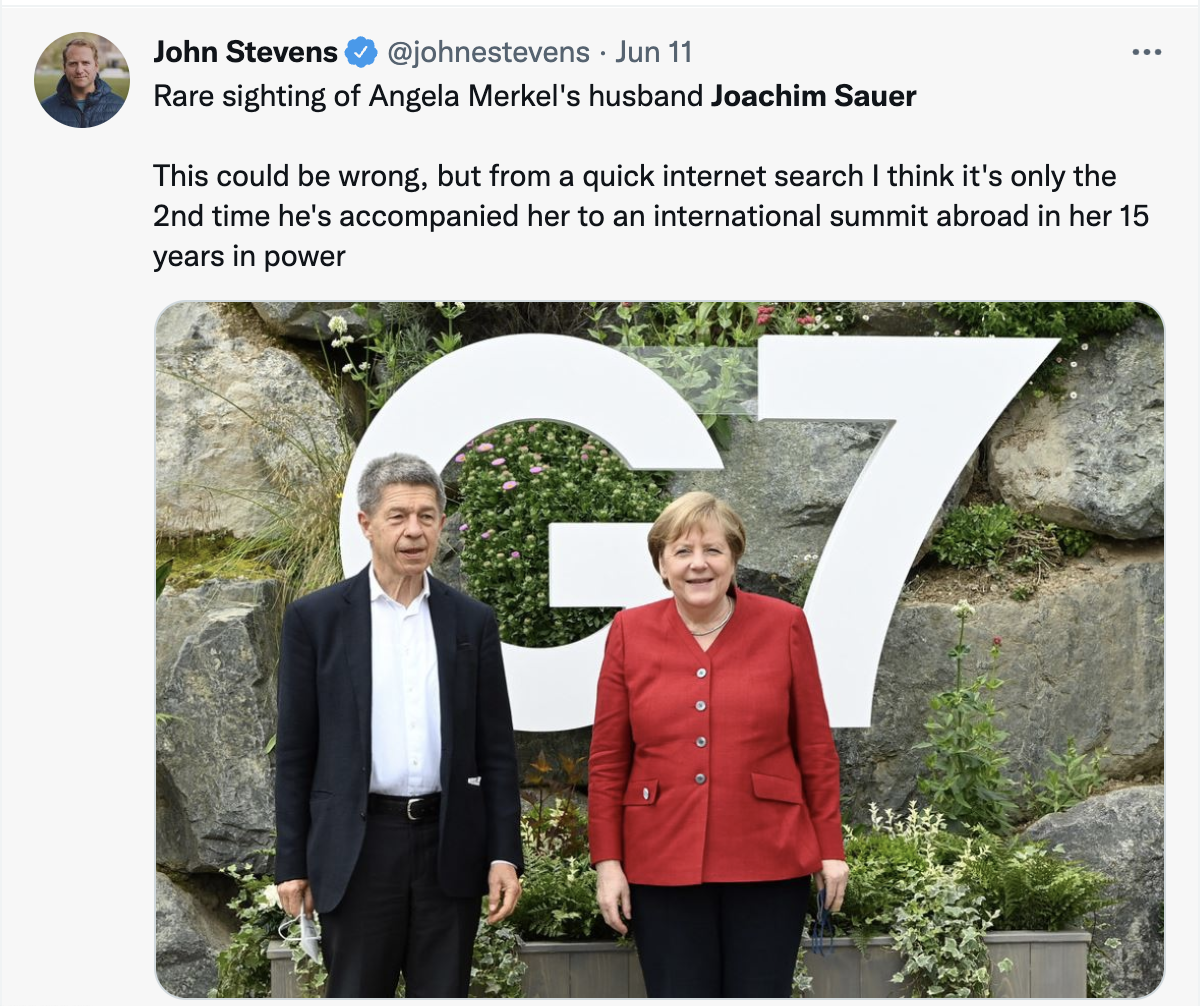
Anyway, back to 1999. A financial scandal hit the CDU and party leader Helmen Kohl, who promoted Merkel to her first ministerial position back in 1991.
Many of Kohl’s CDU colleagues remained quiet. However Merkel spoke out, denouncing her mentor and calling upon him to resign.
It was a move described as “political patricide” - that is, the killing of one’s own father. Subsequently Kohl resigned, and Merkel was elected as leader of the SDU.
“One of the things people don't always understand about her is she's… actually a ruthless political operator…the way she dealt with all of her rivals in the CDU… she would get rid of them in a switch of an eyebrow." Jonathan Powell, British Diplomat
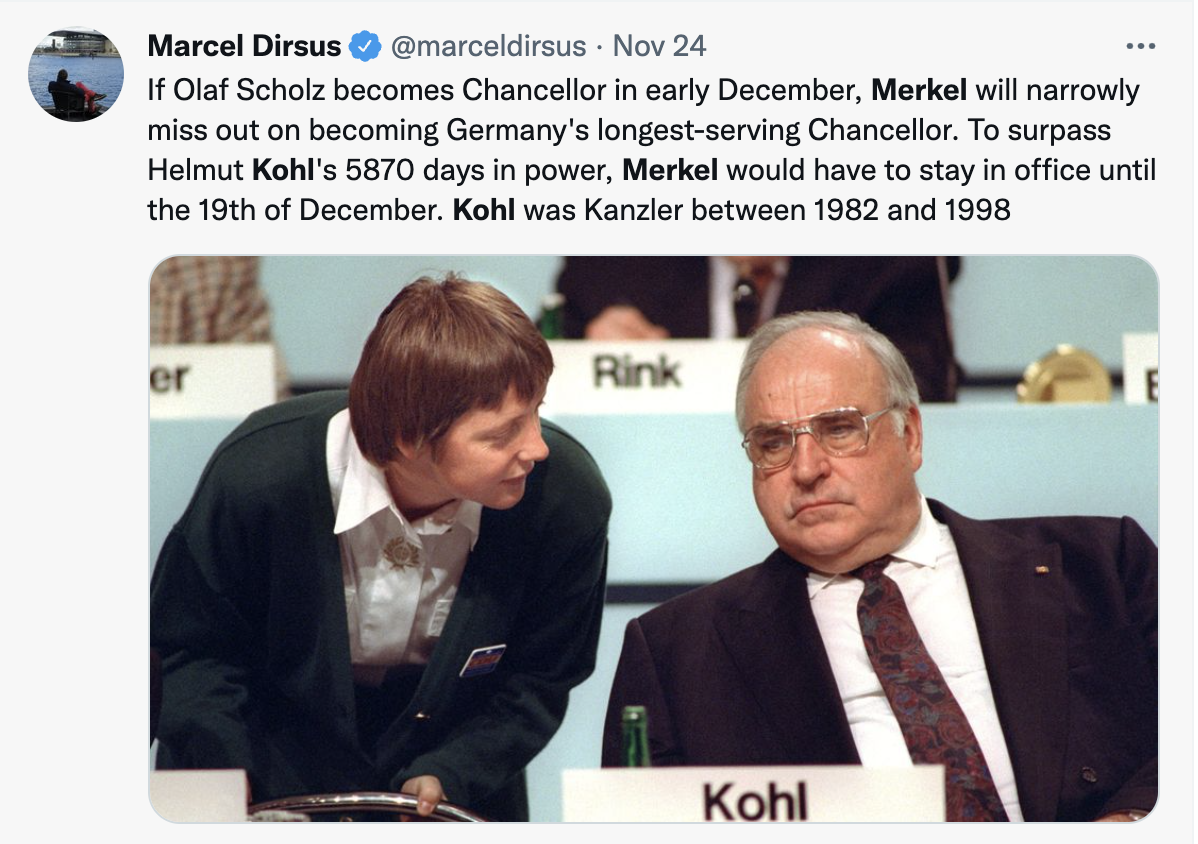
CHANCELLOR MERKEL
In November 2005, Merkel was elected as German Federal Chancellor. She was both the first woman in German history to hold this position, and the first person from former East Germany.
She has been described as “an unusually private and reticent politician - there is no exhibitionism and grandstanding. Even for Germans, she's a hard woman to know”.
POPULARITY
Nicknamed ‘Mutti’ meaning ‘Mommy’ - throughout most of her tenure Merkel enjoyed strong support in Germany.
She was elected four times: in 2005, 2009, 2013 and 2018. Her victory in 2013 was one of the most decisive victories in German history - coming within five seats of the first absolute majority in the Bundestag since 1957.
SOCIAL VIEWS
Angela Merkel has long been opposed to same-sex marriage. However, after 12 years in office she allowed a vote on it to be held in the Bundestag in 2017 - to “respect between different opinions, but also bring more social cohesion and peace”.
Merkel herself did not vote in favour of passing the bill as has a long held view that “marriage in German law is... between a man and a woman.”
Despite this, gay marriage was approved by a wide margin.
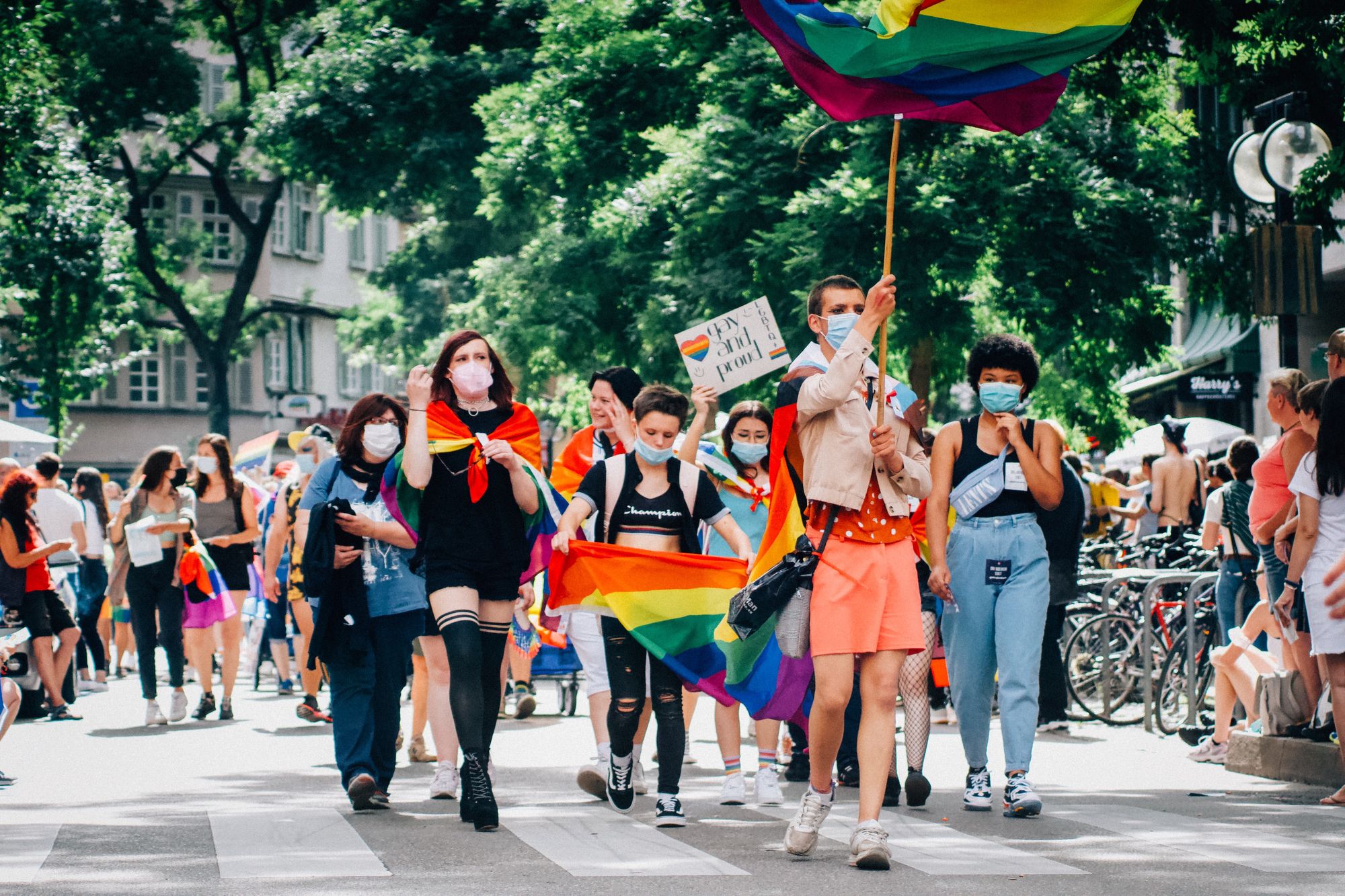
IMMIGRATION
Merkel and her government have held a more open stance on immigration than much of Europe. In response to the refugee crisis in 2015, Germany opened its borders, allowing people “to cross the border first and have their asylum claims checked later”.
Within a few weeks 10,000 people had crossed the border, mostly coming from Syria, North Africa, Iraq, or Afghanistan - many of whom had been stuck in Hungary. The total number of people who applied for asylum in Germany in 2015 was almost 500,000, and in 2016 this increased to 750,000.
However, not everyone in Germany was convinced with the new policy - and Merkel and her government suffered in the opinion polls.
A September 2018 poll found 51% of citizens felt their government did not take Germans’ concerns about immigration seriously. The figure was as high as 66% in eastern Germany.
GERMANY IN EUROPE
Germany is the largest economy in the European Union (EU), and the fourth largest in the world after the USA, China, and Japan.
During her time in office, Merkel has been described as the “queen of Europe” - and the only one who can “call the shots and strike a balance between North and South, East and West, left and right”.
However, according to an economist at the European Policy Center, Merkel did not seek to be the leader of the EU - but as the Chancellor of Germany, and therefore the head of the continent’s largest economy, she naturally assumed the role.
RELATIONSHIP WITH PUTIN
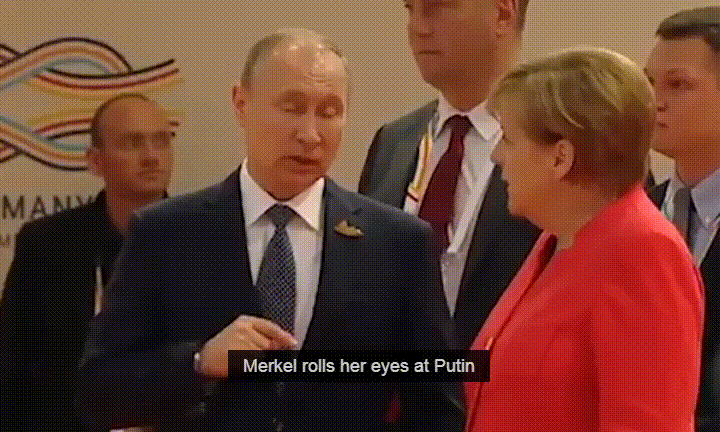
Angela Merkel and Vladimir Putin’s relationship goes back a long time. Merkel speaks Russian and Putin speaks German, aiding communication between the two leaders.
Merkel is Putin’s closest European negotiator and, according to one of her senior officials, Merkel “has a way of talking to Putin that nobody has”.
Worth noting: Putin is a former KGB officer who was stationed in Dresden, East Germany (the side Merkel is from), when the Berlin Wall fell in 1989.
One incident that caused a stir in Germany happened during Merkel’s visit to Russia in 2007. It is well-known that the German Chancellor has a fear of dogs. Yet Putin brought his dog into their meeting, causing Merkel to become visibly uncomfortable.
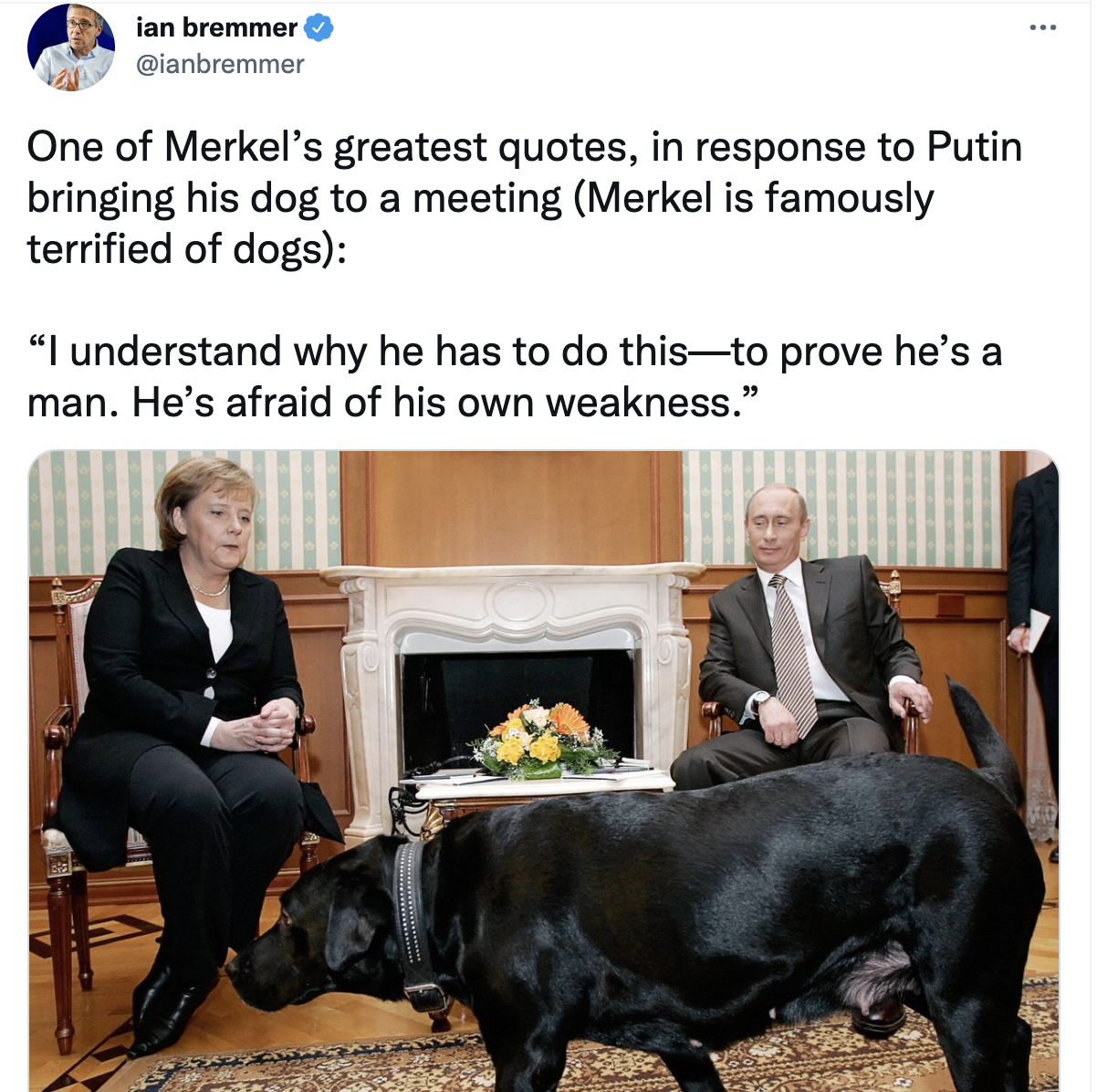
She later told reporters that;
“I understand why he has to do this - to prove he’s a man. He’s afraid of his own weakness. Russia has nothing, no successful politics or economy. All they have is this.”
Tensions between the two countries have increased over the years. In 2014, Merkel led the EU’s response to the Russian annexation of Crimea which led to sanctions against Russia.
In 2020, German doctors found that Russian opposition leader Alexey Navalny was poisoned, and Merkel's government offered him medical treatment in Berlin.
Merkel said at the time it was a clear case of attempted murder, adding there were "very serious questions that only the Russian government can answer".
Still, Russia had the backing of Merkel’s administration for its energy project - the Nord Stream 2 gas pipeline. The pipeline will provide Russian gas to European countries - and there is concern it may make countries too reliant on Moscow for energy - as it could use the supply for political leverage. Currently, several NATO countries are urging the incoming coalition government to reconsider the plans.
MERKEL STEPPING DOWN
In 2018, Merkel declared that she would step down as Chancellor and leader of the CDU when her fourth term finishes, at the end of 2021.
Although she won the 2018 election, her party vote share had fallen significantly. Merkel took responsibility for the CDU’s poor performance in the elections and admitted that “the time has come to open a new chapter”.
During her long tenure, Merkel has seen many world leaders come and go, as we've illustrated below.

THE RECENT ELECTION
The German election took place September 2021. However, it failed to produce a clear winner. The CDU - now led by Armin Laschet - performed poorly, achieving its worst results in its 76 year history.
The largest share of the vote was won by the centre-left Social Democrats (SPD), led by Olaf Scholz. The SPD had been the junior party in a coalition with Angela Merkel and the CDU for 12 of the past 16 years.
After the election, the SPD came to a coalition agreement with two other parties - the Greens and the Free Democratic party (FDP). The coalition was described by the Guardian as an “odd mix of status quo thinking and reformist instincts”.
WHAT'S NEXT FOR GERMANY?
This next coalition is being widely referred to as the "traffic light government," in reference to the three parties and their red, green and yellow colours.
Olaf Scholz - who is expected to become chancellor within a few days - is considered a left-of-centre politician, who previously served as both vice-chancellor, and as a minister in coalition with Merkel.
In fact, his SPD party served as a junior partner in coalition with Merkel's CDU party for much of the last eight years.
The new coalition agreement includes a commitment to shut down all coal power plants by 2030, and to source 80% of energy from renewable sources by the same year. The Green Party is expected to have strong influence over environmental policy.
The incoming chancellor has pledged to raise the minimum wage to €12 an hour - but the finance minister from the FDP is expected to resist any lavish spending plans. Interestingly, the government has said it will legalise the sale of cannabis for recreational use.
In terms of foreign policy a familiar pro-European stance is expected - but the incoming foreign minister is expected to be more firm in dealings with China and Russia. In regard to the latter, it is unclear what position the incoming government will take on the Nord Stream II gas pipeline.
We hope this was a helpful and interesting read. If you enjoy NewsFix, please help us in spreading the word - and let's grow this community together!
